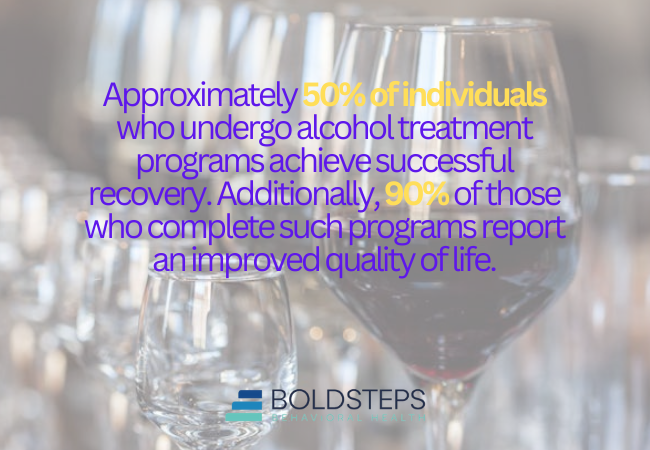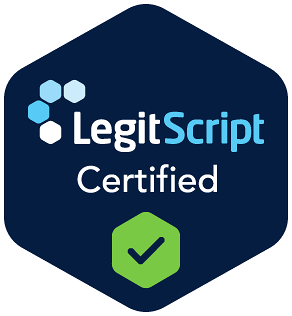Alcohol addiction is a pervasive condition that impacts individuals physically, emotionally, and socially. It affects not only the person struggling with addiction but also their families, careers, and overall quality of life. However, recovery is possible with the right support and treatment. Personalized alcohol treatment programs are essential for addressing the unique needs of each individual and fostering long-term sobriety.
At Bold Steps Behavioral Health, we specialize in creating customized recovery plans that help individuals overcome alcohol addiction and rebuild their lives. In this blog, we’ll explore how alcohol treatment programs are designed, the key components of successful recovery, and why choosing the right program is crucial.
The Importance of Tailored Alcohol Treatment Programs
Alcohol addiction affects every individual differently. Factors such as the duration and severity of addiction, co-occurring mental health conditions, and personal circumstances all shape the recovery journey. This is why a one-size-fits-all approach is insufficient for effective treatment. Tailored alcohol treatment programs ensure that each individual receives care designed to address their unique challenges and goals.
1. Addressing Individual Needs
Every person’s experience with alcohol addiction is unique. Tailored programs take into account:
- Addiction Severity: Treatment is adjusted based on the intensity and impact of alcohol use.
- Mental Health Conditions: Many individuals with alcohol addiction also face anxiety, depression, or PTSD, requiring dual diagnosis care.
- Personal Circumstances: Factors like employment, family responsibilities, and financial constraints influence the choice of program.
This personalized approach ensures that treatment is relevant, effective, and supportive.
2. Enhancing Engagement and Motivation
When individuals see that their treatment aligns with their personal goals and circumstances, they are more likely to engage fully in the recovery process. Tailored programs foster:
- A Sense of Ownership: Clients feel actively involved in shaping their recovery journey.
- Higher Retention Rates: Personalized care increases the likelihood of completing the program.
3. Flexible Treatment Options
Tailored programs often offer various levels of care, such as:
- Partial Hospitalization Programs (PHPs) for those requiring structured daytime treatment.
- Intensive Outpatient Programs (IOPs) that balance therapy with work or family responsibilities.
- Outpatient Treatment for individuals with milder addiction or as a follow-up to intensive care.
This flexibility allows individuals to receive the right level of support at every stage of recovery.
4. Focus on Long-Term Success
By addressing the specific causes and consequences of addiction, tailored treatment programs prepare individuals for lasting sobriety. These plans incorporate therapies, skill-building, and aftercare strategies that empower individuals to navigate life confidently without alcohol.
At Bold Steps Behavioral Health, we prioritize personalized care to ensure that each client receives the support they need to achieve long-term recovery.
The Detox Process: The Foundation of Recovery
For individuals struggling with alcohol addiction, the journey to sobriety often begins with detoxification. Detox is the process of removing alcohol from the body while managing withdrawal symptoms. It is a critical first step in recovery, laying the groundwork for the therapeutic work that follows.
1. The Role of Detox in Recovery
Detoxification addresses the immediate physical effects of alcohol dependence, helping individuals achieve physical stability. Without detox, withdrawal symptoms can be severe and potentially life-threatening, making medical supervision essential.
2. Managing Withdrawal Symptoms
Withdrawal symptoms can vary in intensity depending on the severity of alcohol addiction. Common symptoms include:
- Anxiety and irritability.
- Nausea and vomiting.
- Insomnia and fatigue.
- Severe cases may involve seizures or delirium tremens (DTs).
At detox and rehab centers, medical professionals monitor individuals 24/7 to manage symptoms and ensure safety.
3. Medications for Support
In some cases, medications are used to alleviate withdrawal symptoms and stabilize the body during detox. These may include:
- Benzodiazepines to reduce anxiety and prevent seizures.
- Anticonvulsants to manage seizures and tremors.
- Nutritional Supplements to address deficiencies common in individuals with long-term alcohol abuse.
These interventions help individuals navigate the detox process with greater comfort and safety.
4. Emotional Support During Detox
The detox process can be emotionally challenging. Professional support is crucial to help individuals cope with feelings of fear, anxiety, or uncertainty. Counselors and support staff provide encouragement, guidance, and reassurance throughout this phase.
5. Transitioning to Therapy
Detox alone is not a cure for alcohol addiction. Once the body is stabilized, individuals are better prepared to engage in the therapeutic components of their recovery plan. Detox serves as the foundation for the deeper work of addressing the psychological and emotional aspects of addiction.
At Bold Steps Behavioral Health, our medically supervised detox services ensure that clients begin their recovery journey safely and with the support they need to move forward.
Comprehensive Therapy for Alcohol Addiction
Therapy is at the heart of any effective alcohol treatment program. At Bold Steps Behavioral Health, we utilize a range of therapies to address the psychological and emotional aspects of addiction.
- Cognitive Behavioral Therapy (CBT): Identifies and challenges negative thought patterns that contribute to addictive behaviors.
- Dialectical Behavior Therapy (DBT): Focuses on emotional regulation and stress management, helping individuals navigate the ups and downs of recovery.
- Group Therapy: Fosters a sense of community and provides a safe space to share experiences and learn from others.
- Family Therapy: Rebuilds trust and improves communication among family members, creating a supportive recovery environment.
By addressing the root causes of addiction and providing tools for healthier coping mechanisms, therapy empowers individuals to achieve lasting change.
Personalized Levels of Care
At Bold Steps Behavioral Health, we recognize that every individual requires a different level of care based on their unique circumstances. We offer several program options:
- Partial Hospitalization Program (PHP): Ideal for those who need intensive therapy but prefer to return home in the evenings.
- Intensive Outpatient Program (IOP): Combines structured treatment with the flexibility to manage work, school, or family commitments.
- Outpatient Treatment: Designed for individuals with milder addiction or as a step-down option after completing an intensive program.
These options ensure that individuals receive the right amount of support at every stage of their recovery.
Addressing Co-Occurring Disorders
Many individuals with alcohol addiction also struggle with co-occurring mental health conditions such as depression, anxiety, or PTSD. Dual diagnosis treatment is essential for addressing both issues simultaneously.
- Integrated Care: Combines addiction treatment with mental health therapy to promote holistic healing.
- Personalized Approach: Ensures that treatment plans consider all aspects of an individual’s well-being.
By treating co-occurring disorders, individuals are better equipped to sustain long-term sobriety.

Building Life Skills for a Sober Future
Recovery is about more than abstaining from alcohol; it’s about creating a fulfilling, alcohol-free life. Alcohol treatment programs at Bold Steps Behavioral Health include life skills training to help individuals regain independence and confidence.
- Time Management: Learning to structure daily routines to promote productivity and stability.
- Healthy Coping Mechanisms: Developing strategies to handle stress, triggers, and cravings without alcohol.
- Career and Education Support: Assisting individuals in pursuing professional or educational goals.
These skills provide a foundation for individuals to thrive in their personal and professional lives.
Relapse Prevention and Aftercare Support
Maintaining sobriety requires ongoing support. At Bold Steps Behavioral Health, we emphasize relapse prevention and aftercare to ensure long-term success.
- Relapse Prevention Plans: Personalized strategies to identify and manage triggers.
- Continued Therapy: Regular sessions to reinforce progress and address new challenges.
- Alumni Programs: Opportunities to connect with others in recovery for peer support and encouragement.
Aftercare is a critical component of recovery, bridging the gap between structured treatment and independent living.
Why Choose Bold Steps Behavioral Health?
At Bold Steps Behavioral Health, we are committed to providing exceptional care that transforms lives. Here’s why individuals and families trust us:
- Comprehensive Programs: From detox to aftercare, we offer a full spectrum of services tailored to individual needs.
- Evidence-Based Approaches: We combine proven therapies with holistic treatments to ensure well-rounded care.
- Experienced Professionals: Our team of licensed therapists, counselors, and medical staff bring years of expertise and compassion to their work.
- Family-Centered Care: We involve loved ones in the recovery process to create a strong support system.
- Peaceful Environment: Our facility provides a safe, nurturing space where individuals can focus on healing.
Whether you’re seeking help for yourself or a loved one, we are here to guide you every step of the way.
Take the First Step Toward Sobriety
Alcohol addiction may feel overwhelming, but recovery is possible with the right support. At Bold Steps Behavioral Health, we help individuals overcome addiction, rebuild their lives, and achieve long-term sobriety.
Contact us today at (603) 915-4223 or visit Bold Steps Behavioral Health to learn more about our alcohol treatment programs, rehab centers, and other services. Take the bold step toward a healthier, happier future today.
Frequently Asked Questions (FAQs)
What is an alcohol treatment program?
An alcohol treatment program is a structured plan designed to help individuals overcome alcohol addiction. It includes detox, therapy, life skills training, and aftercare support to promote long-term sobriety.
How does detox work in alcohol treatment?
Detox is the first step in recovery, where alcohol is safely removed from the body under medical supervision. This process helps manage withdrawal symptoms and prepares individuals for therapy.
What types of therapy are included in alcohol treatment programs?
Therapies may include Cognitive Behavioral Therapy (CBT), Dialectical Behavior Therapy (DBT), group therapy, family therapy, and holistic approaches such as mindfulness and yoga.
Are alcohol treatment programs personalized?
Yes, effective programs are tailored to the individual’s needs, considering factors like addiction severity, co-occurring disorders, and personal circumstances.
What is the difference between PHP, IOP, and outpatient treatment?
- Partial Hospitalization Program (PHP): Intensive therapy during the day with the ability to return home in the evening.
- Intensive Outpatient Program (IOP): Combines structured therapy with flexibility for work or family commitments.
- Outpatient Treatment: Less intensive care for individuals with milder addiction or as a step-down from higher levels of care.
Can alcohol treatment programs address mental health issues?
Yes, dual diagnosis treatment is available for individuals with co-occurring mental health disorders like anxiety, depression, or PTSD, ensuring comprehensive care.
How do treatment centers help prevent relapse?
Relapse prevention plans include identifying triggers, developing healthy coping mechanisms, ongoing therapy, and alumni support groups to sustain sobriety.


